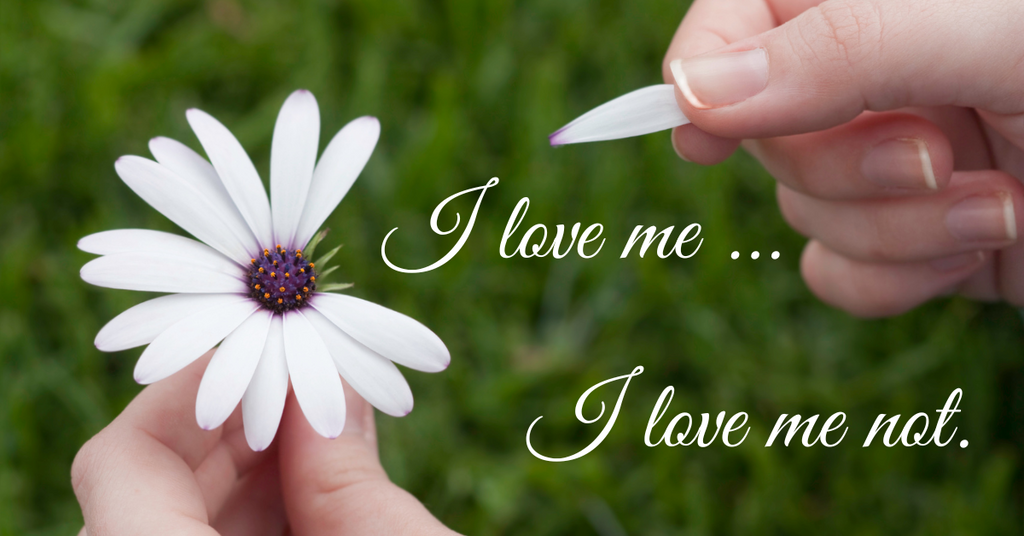The Personal Side of Body Positivity

One thing I’ve noticed during my time on this planet is that perspective is everything. And most of the women I’ve known through the years have the perspective that something is physically wrong with the image looking back at them in the mirror. Too small, too big, too tall, too short, too buxom, too flat, too curly, too straight … I could do this all day. Suffice to say that most of us are vulnerable to self-criticism and a negative body image.
But this is nothing new. We have been subjected to society’s opinion of beauty since the beginning of time. The ideal varies from generation to generation, but one thing remains constant: for most of us, the ideal is beyond our grasp.

Unattainable ideals of physical perfection and beauty can, and often do, result in poor body image which, in turn, can trigger depression, low self-esteem, and eating disorders.
Leave it to Emily Nagoski to put the situation in a nutshell:
“Your body is wrong. If you’re not trying to change it, you’re lazy. If you’re satisfied with yourself as you are, you’re settling. And if you dare to actively like yourself, you’re a conceited bitch. In short, you are doing it wrong. Do it differently. No, that’s wrong too, try something else. Forever. This”

The “Thin Ideal”
We are barraged with images of the “thin ideal” on a daily basis. It's the relentless reminder that thin equals health, success, happiness, and beauty. And the truth is most of us will never measure up to the ideal as defined by Instagram, the fashion industry, and Hollywood. Sure, we’re seeing changes in the way that people are represented in advertising and even on some runways, but we all know full well that the thin ideal is very much alive and kicking.
Enter body positivity.
Body Positivity - the movement - challenges society’s ideal of beauty and encourages people to accept and celebrate their own bodies as they are – as opposed to focusing on a future perfected version of themselves. According to Susan Albers, PsyD:
“the central concept [of body positivity] is the idea that beauty is constructed by society and it should not determine someone’s self-worth or value”

It's a Movement
Interestingly, the current Body Positive Movement is rooted in the Fat Acceptance Movement of the late 1960s when advocates campaigned for equal rights for “people of higher weights” and criticized the diet industry. The Fat Underground, a feminist group formed in 1970, also wanted equal rights and considered the diet industry the enemy.
It was 1996, when the term “body positive” was coined by a psychotherapist (Elizabeth Scott) and an eating disorder patient (Connie Sobczak). But the movement in its current form really began to take shape in 2012, when unrealistic feminine beauty standards came under fire on Instagram. In fact, women have made their voices heard on the subject to the tune of 13 million posts since 2020.

Here are some features of the body positivity philosophy:
- Feeling confident in our bodies
- Loving ourselves
- Accepting our sizes and shapes
- Enjoying our bodies as they are and not beating ourselves up over changes that happen naturally like pregnancy and aging.
Body positivity seeks to help adjust body expectations so people feel more positive and accepting of their own bodies and this, in turn, combats the toll that poor body image can take on mental and physical health.
Criticisms of the Body Positivity Movement
The movement is not without its detractors. Here is a list of criticisms of the body positivity philosophy.
- Some people view body positivity as implying that you should do whatever you have to do in order to feel positive about the way you look.
- When we idealize thinness, it can lead people to engage in unhealthy behaviors like excessive exercise and extreme diets (under the guise of feeling “body positive”).
- Depictions of body positivity tend to exclude people of color, disabled, LGBTQ and non-binary.
- Body positivity expands the concept of beauty, but it also keeps the focus on the way we look and makes appearance of the body one of the most important pieces of who we are.
- The message is that you should change the way you feel about your body. But it can be damaging to be positive and accepting of ourselves at the same time we’re bombarded with messaging that promotes a physical ideal. And when we fall short, it can also lead to guilt and shame.
- Repeating positive affirmations that we don’t believe to cover up negative feelings can be confusing and even harmful.
- It normalizes obesity without acknowledging the health issues related to unhealthy body weight.

Is It Okay to Accept My Body at an Unhealthy Weight?
There’s no denying the fact that being underweight or overweight can lead to negative physical consequences. Too much fat on our bodies can lead to higher blood pressure and cholesterol levels that, in turn, can lead to heart disease. It can also lead to type II diabetes and a myriad of other conditions. Being underweight can also cause serious issues like anemia, osteoporosis, and decreased immune function. And we can suffer from low energy and a diminished quality of life when our bodies carry too much, or not enough, weight.
But accepting ourselves and feeling positive about our bodies is a separate issue from what the scale is telling us. Loving our bodies and our physical health are not concepts that have to be mutually exclusive. It's possible to have both without one compromising the other. If anything, body acceptance and positivity can open us up to taking better care of ourselves, because when we stop with the criticisms and comparisons, we tend to embrace habits that support our health rather than work against it. Of course, decisions about our physical selves are very personal and we get to make them on our own – or with our doctor. And those decisions can be totally separate from the way we look.

A Word On Social Media
Social media in general and Instagram, in particular, have played a part at promoting the tenants of the body positivity movement. In fact, Instagram has played a significant role in its popularity. At the same time, unrealistic and unattainable body standards are depicted prominently in social media. Photo shopped selfies are routinely posted and images are edited and altered so it’s difficult to know what’s real and what’s an illusion – all feeding back into the idea of unattainable “beauty”. So, when it comes to social media, let's proceed with caution and pay attention to how it makes us feel.
Steps Toward Change
Here are some suggestions for beginning the process of changing the way we feel about our bodies.
- Reject the images we see on film and in media as the standard for what we should look like and embrace the reality of ourselves.
- Focus on loving ourselves– as we are right now, not in a month or two after we've changed our appearance.
-
Recognize body ideals for what they are . . . and are not. We certainly can appreciate beauty in others, but we need to do so without turning it into a contest. There is no comparison – each of is unique.
-
Spend some time thinking about the function and pleasure our bodies give us every day.
- Commit to stop negative self-talk when we're looking at ourselves in the mirror.
-
Wear clothes that we feel good in.
- Separate ourselves from people who do not make us feel good about our bodies and spend time with friends and family who are not focused on physical "perfection".
- Stay away from social media accounts that negatively impact our psyches.
- Eat healthy foods, because they fuel our bodies and minds and make us feel good.
- Exercise because of how it makes us feel: energized, strong, in control.
- Get enough sleep, because it’s a thing. Without adequate sleep, whatever else we do for our health will not have the same impact.

Last Word
Body positivity is a decision. It’s also a process, because it doesn’t come naturally to most of us. Our attention is so often drawn to the parts of our bodies that we judge as flawed or subpar when we look in the mirror. And the struggle to accept the physical changes that can be triggered by childbirth, illness, menopause, and aging are real and universal. Many of us are forever striving to achieve the unattainable or lamenting the fact that we fall short.
What's more, it can be difficult to ignore the picture of physical perfection created by marketing and media. Often these illusions are constructed with digital hocus pocus, meaning the ideal they portray is literally impossible to achieve.
Body positivity comes down to loving ourselves as we are right now while rejecting society’s opinion of how we should look. That means letting go of the ideal as a goal and resisting the temptation to compare ourselves to other women. But it's more than that. Body positivity means accepting ourselves as our own ideal of beauty - celebrating ourselves for exactly who we are right now. It means holding our heads high and walking in a way that says, I love me.
“Remind yourself that the day you were born, your body was a cause for celebration, for love without condition, and that’s just as true today as it was then.”
― Emily Nagoski

References:
Very Well Mind; What Is Body Positivity?; Kendra Cherry, medically reviewed by Claudia Chaves, M.D.; November 21, 2020
Medical News Today; What to know about the body positivity movement; Mary West; medically reviewed by Bethany Juby, PsyD; April 29, 2022
Cleveland Clinic; What’s the Difference Between Body Positivity and Body Neutrality?; April 22, 2022
Psychology Today; What Does Body Positivity Actually Mean?; Katherine Cullen, MFA, LMSW; August 11, 2016
Psychology Today; The Problem With Body Positivity; Susan McQuillan; June 13, 2022
Psychology Today; Body Image; Psychology Today Staff; No date
The Recovery Village; The Importance of Body Positivity; Megan Hull; medically reviewed by Sarah Dash, Ph.D.; May 26, 2022
NPR: It’s Been A Minute; Staying Grounded After Roe v. Wade; plus let’s talk about fat liberation; B.A. Parker (host); Clarkisha Kent (guest); July 1, 2022


Leave a comment